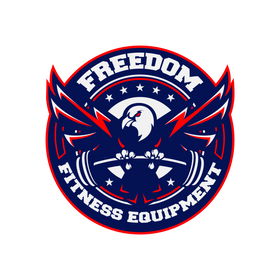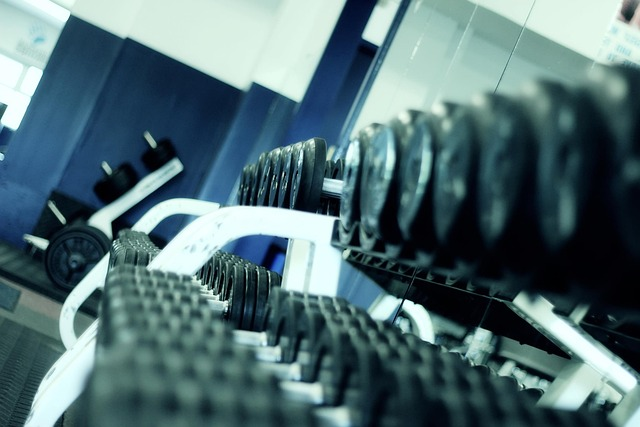-
You are unsure about your own training style and looking to become more knowledgable about the subject.
-
You want to thwart your fellow gym bro in this debate between free weights versus machines.
-
You are genuinely curious about what others have to say on the matter.
Whatever your reason for being here - listed or unlisted -, I'll go ahead and offer up my thoughts.
The short answer? No, free weights are not better than machines.
The long answer? Still no.
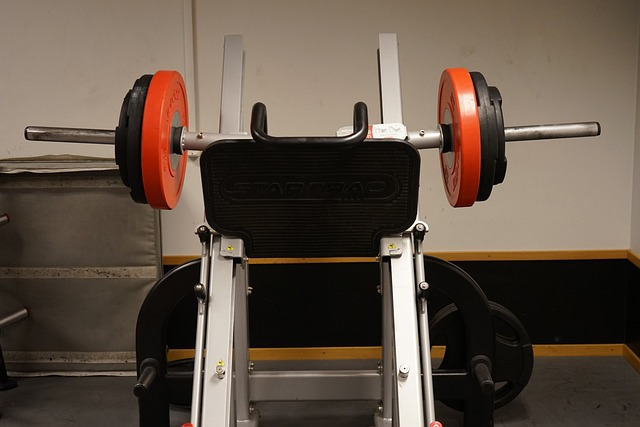
As one who spends much time in deep thought - and as a runner turned bodybuilder turned personal trainer - my internal conflict lies not with the topic at hand but rather with the nature of the question itself, which promotes polarized black and white thinking that doesn't allow for gray area. Now, this wouldn't be an issue except for the fact that this kind of thinking in one area likely permeates the rest of your life as well, including your training.
Pause for a brief self reflection because you did not expect a fitness equipment article to get quite this deep.
Okay, I know this might seem unrelated, but it's not. Rather, it's integral for my response to this question. An increased ability to identify black-and-white, all-or-nothing thinking results in an increased receptiveness to gray area and middle ground.
Maybe the alternative to something good in this scenario (ie. free weights) is not something that is worse. What if the alternative is just as good but for different reasons?
This process of thought deconstruction can be applied to any given area of your life. You can reframe any question in a new light: your training, your perception of progress, and even your opinion on whether or not free weights are better than machines. That is why I would like to reframe the question before even attempting to address the issue at hand.
Reframe the Question

Instead of asking which pieces of equipment are better, I would instead encourage you to ask, "What are the benefits and drawbacks of using free weights and machines?" And, "How do those align with my health and fitness goals?"
Benefits and Drawbacks of Free Weights

Types of free weights include weight plates and barbells, dumbbells, kettlebells and medicine balls, which can all be used to work towards your fitness goals, whether they include losing fat or putting on muscle mass.
I wrote a full breakdown of free weights here in case anybody is curious about what they are and how to use them. I also wrote this article about different free weights exercises for the whole body.
Benefit #1: Allow for Fuller Range of Motion
Unlike weight machines, free weights allow the user to determine what a full range of motion (ROM) looks like for them in their current state of health. Factors that could potentially limit the ROM for a muscle group include injury, inflammation, disease, flexibility, age, joint health, daily activities...the list goes on.
Because there are so many factors that affect one's ROM for any given muscle, a "full" ROM could look very different between two people for the same exercise. For example, an incline chest press machine could cause flare-ups for someone with a recurring rotator cuff injury. Performing incline chest presses with dumbbells, however, could allow that person to perform the same movement with slightly different form and pain-free shoulders. Free weights help individualize the process of finding a full ROM.
Drawback #1: Risk of Injury
Every strength is just a weakness in the right lighting, and the entire range of motion free weights permit is no different. If you're unfamiliar with (a) correct form or (b) what it feels like to correctly engage a group of muscles, it wouldn't be difficult to hyper-extend a joint, perform a movement incorrectly or overcompensate with different muscles while using free weights.
If you're using free weights that don't require a rack or safety mechanism, it's possible to drop the weights if you've exhausted your muscles or if an unexpected disruption occurs. I've accidentally dropped dumbbells plenty of times while moving them to my bench or simply because my muscles gave out mid-rep.
Granted, any type of weight training has inherent risk of injury, and injuries can occur whether you're using free weights, machines or bands. For that reason, it's important to consult more-experienced friends or a personal trainer when you first begin strength training in order to establish what good form and safety look like for you.
Benefit #2: Increased Functionality
Using free weights forces you to recruit other muscle groups in addition to the one(s) being worked, resulting in the increased strength and functionality of your body as a whole rather than just the increased strength of the targeted muscle groups. For example, when performing a seated machine shoulder press, you feel the movement in your shoulders, traps and triceps. When performing the same exercise standing with dumbbells, which requires more balance and controlled movement, you're not only engaging the aforementioned muscles but also core muscles including your abdominals and lower back. In this way, you're exercising the pressing movement in addition to the body parts themselves.
Drawback #2: Limited Weight
Number for number, you're often able to lift heavier on weight machines, but weight training isn't always about lifting heavy. Yes, heavier weight means increased resistance, which results in increased muscle breakdown and increased muscle repair and growth. However, lowering the amount of weight you use, increasing the number of reps and lowering your rest periods results in heightened muscular endurance, increasing the overall functionality of your muscles and, subsequently, overall strength. So for you ego-lifters out there, you might consider this a drawback, but to everyone else - myself included - I like to think of this as a benefit!
Benefit #3: Demands Proper Form
Put simply, free weights require proper form. Yes, it's possible to use them with less-than-stellar form and still move heavy weight. However, in order to lessen the risk of injury, improve strength and continue to effectively strength train, your form cannot be overlooked. The good thing is that free weights are very helpful in establishing and maintaining good form. Start with a light enough weight to allow resistance and controlled movements. Consult more experienced people - whether a personal trainer or an online tutorial - to determine what good form looks like, and then start to notice what it feels like in your body as you perform the exercise. What muscles are being engaged? How do I position the weight relative to my body? How can I position myself to engage the correct muscle groups? Free weights allow for a gradual addition of weight and resistance to your exercises as your strength increases.
Drawback #3: Demands Proper Form
On the contrary, if you don't know what proper form looks or feels like, it's easy to continue training with improper form, which would have to be corrected later in order to prevent injury and muscle imbalances. Starting on weight machines or utilizing the experience of a personal trainer can help you establish good form that can subsequently be enhanced and maintained with free weights.
Benefits and Drawbacks of Machines
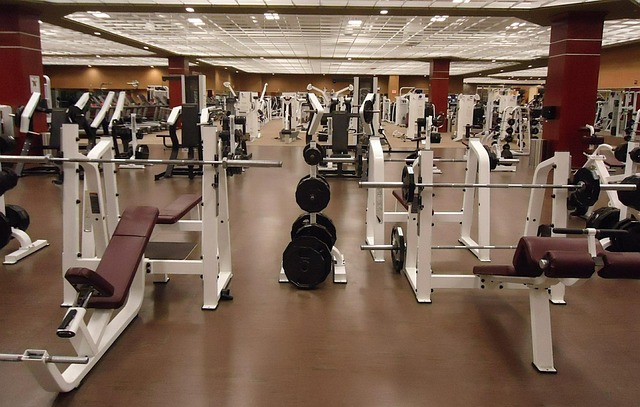
I would argue that there is a machine for just about all the major movement patterns out there - I sure haven't seen them all, but I have seen a lot of really cool machines that allow for a lot of cool movements! A brief list of machine types include pressing machines (eg. leg press and chest press), cable machines, squatting machines, pulling machines, and isolating machines (eg. pecdec, hamstring curl, leg extension, pullover, etc.). Like I said, brief list.
Benefit #1: Establishes Proper Form
While free weight exercises demand proper form, machines can oftentimes help a beginner lifter establish proper form or, at the very least, a baseline for proper form from which they can adjust to suit their body's ROM needs and abilities. As machines also help with muscle isolation, upon which I will elaborate later, using machine weights can help with muscle activation and engagement which, cyclically, aids with proper form. For example, using a chest press machine might help you engage your pecs more than your shoulders, a lesson which you can take to your free weights exercises for chest.
Drawback #2: Decreased Range of Motion
While machines help establish proper form, they can also limit one's range of motion, which I emphasized earlier as essential to proper weight training.
Benefit #2: Muscle Isolation
Free weights help engage your muscles functionally. Though isolation is not impossible with free weights, it's far easier to do with different kinds of machines.
Drawback #2: Decreased Muscle Engagement (At First)
When I first started strength training again after a several-year long break, I remember doing lat pulldowns and not at all feeling my lats engage. After several months of committal, however, I started realizing that I could feel my lats. The same thing applies to your core, as well - you can use machines to help feel your core during your exercises.
Benefit #3: Increased Weight
Increasing muscle mass boils down to tearing and rebuilding your muscles more efficiently, and the increased weight machines allow you to move aids with that tremendously.
Drawback #3: Risk of Injury
Any type of weight training has inherent risk of injury, and injuries can occur whether you're using free weights, machines or bands. For that reason, it's important to consult more-experienced friends or a personal trainer when you first begin strength training in order to establish what good form and safety look like for you.
When to Use Free Weights
-
When Boredom Strikes
Looking to mix up your strength training regimen? Swap some of your free weights exercises for similar ones with a machine!
-
If It's Your Only Option
Any workout is better than no workout, and if free weights are your only option, it's easy to get great workouts in using those alone!
-
You're Looking to Increase Functionality
Free weights are beneficial for increasing functionality and stability. If you're looking to engage your core muscles more, free weights are a must!
-
Limited Space
There's a lot you can do with a handful of free weights. If you're looking to alter your body composition at home without taking up too much space, free weights are a great idea!
When to Use Machines
-
When Boredom Strikes
Looking to mix up your strength training regimen? Swap some of your machine exercises for similar ones with free weights!
-
If It's Your Only Option
Any workout is better than no workout, and if machines are your only option, it's easy to get great workouts in using those alone!
-
You're Looking to Isolate Specific Muscles
Machines are excellent for targeting and engaging specific muscles (so long as it's done congruently with functional movements).
-
You're Looking For Increased Exercise Selection
Functional trainers are excellent machines for increasing your exercise selection, as you can hit all your major - and most of your minor - muscles with one machine!
Final Thoughts
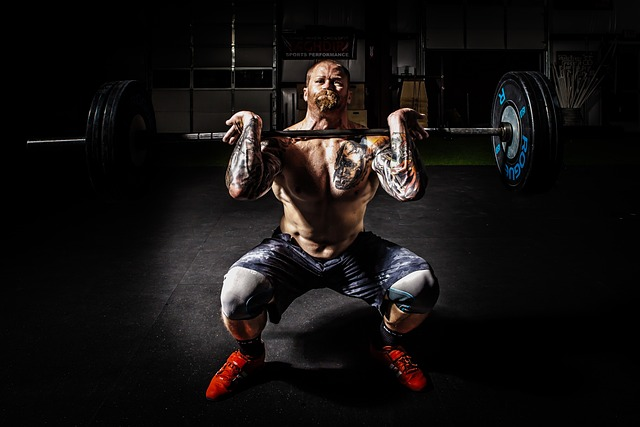
Ah, you made it to the end. I bet you were not expecting philosophy to be mixed into your fitness equipment lesson! I hope that you are considering embracing the idea that an open-minded approach to life is key.
And the answer to the aforementioned questions? It is important to incorporate both free weights and machines into your training regimen when you can. I mean, it would only make sense, then, as to why so many fitness facilities include both a free weights area and a machine area in their gyms. As to whether one is better than the other, it's better to utilize just one type of equipment rather than using neither type. If you only have one - either free weights or machines - as your option, it's a good option.
Neither is inherently better or worse than the other...just different.
